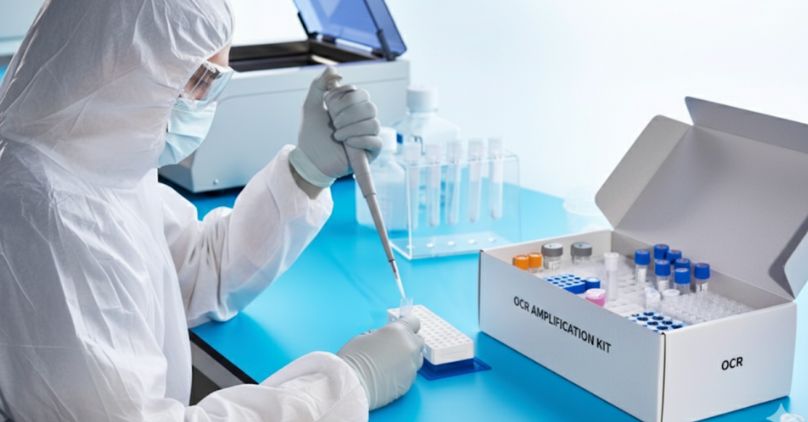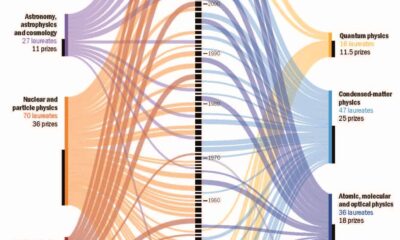Science
Unlocking the Future: PCR Amplification Kits Revolutionize Research

The landscape of molecular biology research is rapidly evolving, significantly influenced by advancements in PCR (Polymerase Chain Reaction) technology. Invented by Nobel Prize winner Kary B. Mullis in 1983, PCR has cemented its status as an essential tool for amplifying DNA, enabling researchers to generate millions of copies of genetic material quickly. The global market for PCR technologies is projected to reach a staggering $21.89 billion between 2024 and 2030, highlighting the technology’s vital role in various scientific fields.
For researchers, the challenges associated with traditional PCR methods—such as manual reagent preparation, contamination risks, and inconsistent results—have led to a growing reliance on PCR amplification kits. These kits are designed to streamline the amplification process, allowing for more accurate and efficient experiments.
Understanding PCR Amplification Kits
PCR amplification kits are comprehensive collections of pre-mixed, ready-to-use reagents. They typically include essential components such as DNA polymerase, primers, nucleotides, and buffers. These kits facilitate the PCR process, which has numerous applications, including disease diagnosis, forensic analysis, and quality control. In research settings, PCR kits are particularly useful in several scenarios:
– Gene cloning and recombinant DNA experiments
– Pathogen detection in microbial or viral research
– RNA analysis in gene expression studies
– Preparation for sequencing or mutational analysis
By utilizing pre-mixed reagents, researchers can minimize human error and enhance the consistency of their results. This simplification allows scientists to focus on data analysis rather than the intricate details of reagent preparation.
Core Components of PCR Kits
Each PCR amplification kit contains the necessary components to support the replication of DNA or RNA. Key ingredients include:
– **DNA Polymerase**: An enzyme crucial for copying DNA. High-fidelity polymerases help prevent replication errors during cloning or sequencing.
– **Primers**: Short, sequence-specific oligonucleotides that define the region of DNA or RNA to be amplified, influencing both specificity and efficiency.
– **dNTPs (Deoxynucleotide Triphosphates)**: The building blocks of DNA, incorporated into the growing DNA strands during amplification.
– **Buffers and Magnesium Ions (Mg2+)**: Buffers maintain the ideal chemical environment for enzyme activity, stabilizing the reaction and enhancing polymerase efficiency.
– **Controls**: Positive and negative controls validate reactions, confirming reagent effectiveness and detecting contamination or non-specific amplification.
These components work synergistically to enhance the precision and reliability of sequencing and cloning experiments, allowing researchers to conduct complex tests with minimal errors.
Beyond the basic requirements, PCR has evolved into various techniques tailored to specific research needs. Conventional PCR, for instance, remains popular for its straightforward approach to amplifying DNA for cloning and genetic studies. In contrast, Real-Time PCR (qPCR) employs fluorescent markers to monitor DNA amplification in real time, enabling researchers to quantify gene expression or viral loads effectively.
One-Step and Two-Step RT-PCR methods provide additional flexibility, particularly when working with RNA. The One-Step method converts RNA into DNA and amplifies it simultaneously, while the Two-Step method separates these processes, allowing for more in-depth analysis.
Despite the advantages of PCR kits, researchers may still encounter challenges during experiments. Common issues include low yield, non-specific bands, contamination, and failed reactions.
For example, low amplification yield can result from low magnesium ion concentration, inaccurate annealing temperatures, or poor template quality. To address this, scientists can increase the cycle number or template count and ensure optimal temperatures throughout the process. Non-specific bands may arise from improper primer design or insufficient annealing temperatures, which can be mitigated by using hot-start polymerases and refining primer specificity.
Contamination remains a significant concern, often leading to false positives. Preventative measures include physically separating pre- and post-PCR areas, using dedicated pipettes, and incorporating negative controls during runs. Failed reactions can stem from degraded templates or missing reagents, requiring researchers to verify all components before commencing experiments.
The benefits of using ready-to-use PCR kits are substantial. They save time by providing pre-mixed reagents, ensuring consistent results across experiments, reducing contamination risks, and allowing for easy scalability in both small tests and large high-throughput studies.
In conclusion, PCR amplification kits represent a pivotal advancement in molecular biology research. By providing ready-to-use reagents, these kits significantly enhance efficiency and accuracy in various applications, from gene cloning to pathogen detection. As researchers continue to harness the power of PCR technology, the potential for new discoveries and advancements in the field remains vast.
-

 Entertainment2 months ago
Entertainment2 months agoAnn Ming Reflects on ITV’s ‘I Fought the Law’ Drama
-

 Entertainment3 months ago
Entertainment3 months agoKate Garraway Sells £2 Million Home Amid Financial Struggles
-

 Entertainment2 months ago
Entertainment2 months agoCoronation Street’s Carl Webster Faces Trouble with New Affairs
-

 Health1 month ago
Health1 month agoKatie Price Faces New Health Concerns After Cancer Symptoms Resurface
-

 Entertainment1 month ago
Entertainment1 month agoWhere is Tinder Swindler Simon Leviev? Latest Updates Revealed
-

 Entertainment3 months ago
Entertainment3 months agoKim Cattrall Posts Cryptic Message After HBO’s Sequel Cancellation
-

 Entertainment2 months ago
Entertainment2 months agoMasterChef Faces Turmoil as Tom Kerridge Withdraws from Hosting Role
-

 Entertainment3 months ago
Entertainment3 months agoSpeculation Surrounds Home and Away as Cast Departures Mount
-

 World1 month ago
World1 month agoCole Palmer’s Mysterious Message to Kobbie Mainoo Sparks Speculation
-

 Entertainment2 months ago
Entertainment2 months agoITV’s I Fought the Law: Unraveling the True Story Behind the Drama
-

 Entertainment1 month ago
Entertainment1 month agoCaz Crowned Winner of The Great British Sewing Bee, Overjoyed by Triumph
-

 Entertainment3 months ago
Entertainment3 months agoMarkiplier Addresses AI Controversy During Livestream Response















